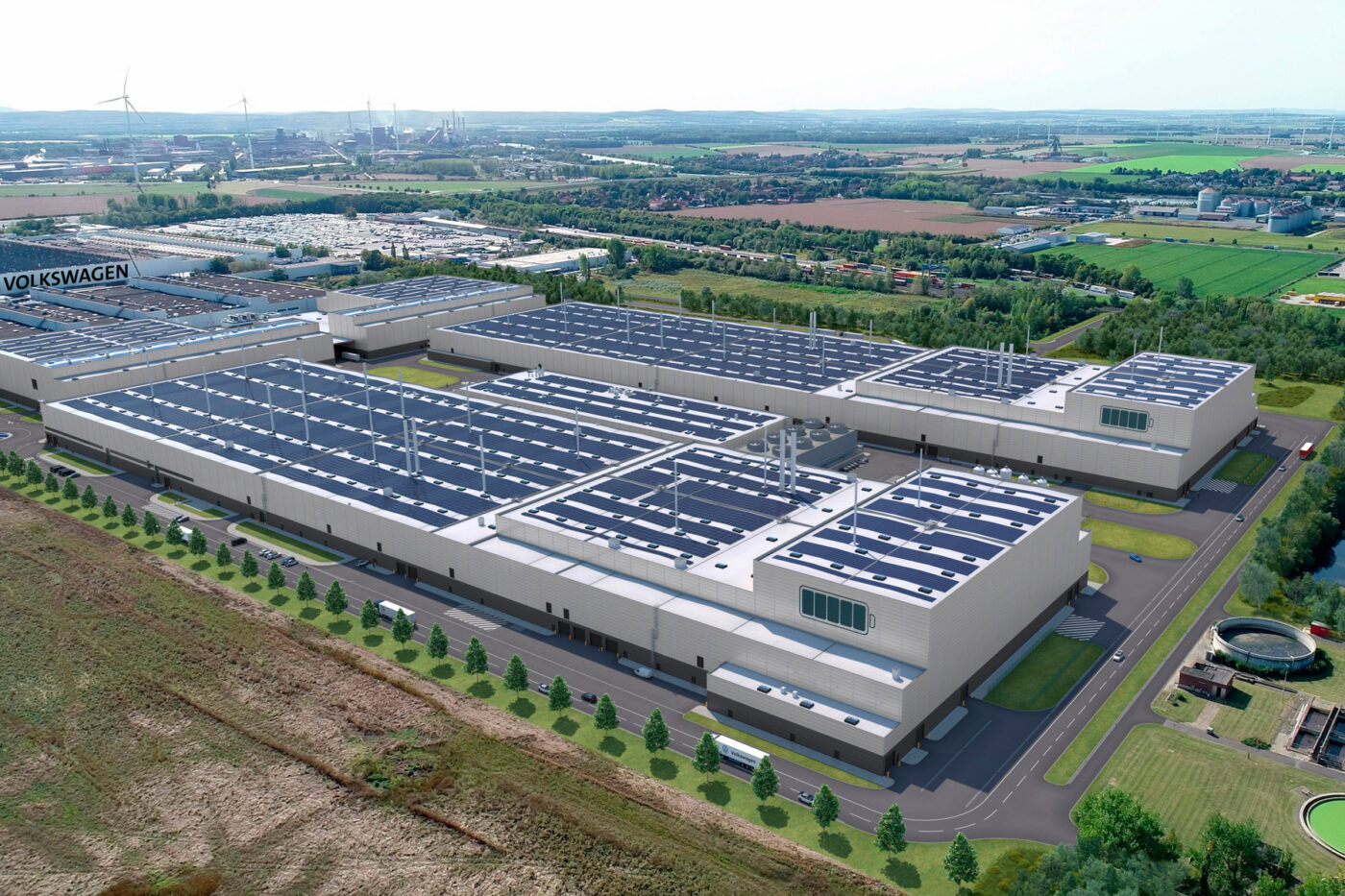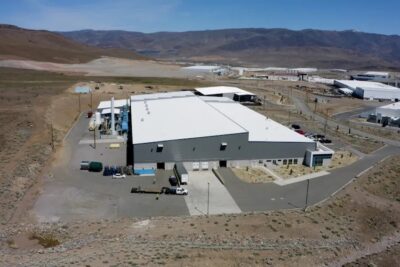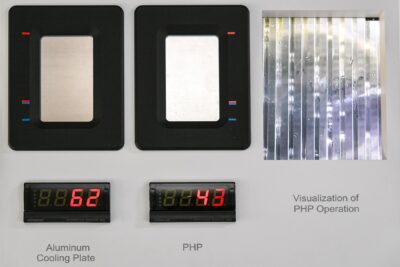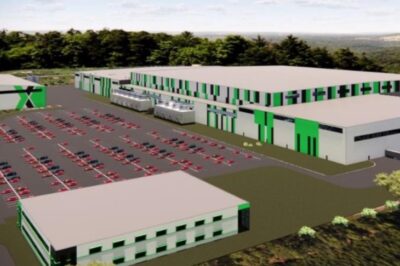PowerCo: VW battery production on schedule
Pre-series production will begin this year before the first cells for series production roll off the production line in 2025. That is what Automobilwoche writes in an article about a conversation with Group Chief Technology Officer Thomas Schmall, but does not quote the manager directly in the information on the timetable. However, Volkswagen will be on schedule for the other PowerCo sites in Spain (Sagunt near Valencia) and Canada (St. Thomas in Ontario). VW had already unpacked the first machines for the factory in Salzgitter at a press event in June 2023.
“We remain convinced that our overall battery strategy is the right way forward – even and especially in times of framework conditions that can change quickly,” said Schmall. He is referring to the mix of purchased and self-manufactured battery cells. The (partial) in-house production means that the core technology of electric mobility is not entirely left to third parties but instead secures the EV offensive “economically and technologically,” the report states.
For a long time, it was assumed that the unified cell would come with the upcoming SSP electric platform. The SSP is still designed for the unified cell but will only debut in 2028, which is too late. The unified cell (a cell in prismatic format that can be fitted with different cell chemistries depending on the vehicle) will thus be used in a different model first.
It will probably be the ID.2. The report states that Günther Mendl, head of the battery centre, did not name “a specific model.” But: “It is no secret that the innovative new development of the MEB battery system as a cell-to-pack concept is consistently designed to be cost-optimised for the unified cell and will be used in the MEB and in the Small BEV Family in the future.” From this, the newspaper deduces that it will be the series version of the ID.2all. However, this has not been confirmed.
The unified cell is always the same size – VW says that the cell format will be “perfectly adapted to the requirements of the automotive industry.” VW can design its platforms for this size – or battery packs designed for these cells using the cell-to-pack concept. Depending on whether it is an inexpensive small car, a volume or performance model in the mid-range, or a premium electric car from Audi or Porsche, an adapted cell chemistry can then be installed in the standard housing. “It takes out a huge amount of complexity and realises maximum cost benefits through scaling while, at the same time, offering full flexibility in terms of cell chemistry and performance classes,” says Schmall. “The initial test results show this: We will be technological leaders in terms of range, charging performance and safety.”
automobilwoche.de (in German)





0 Comments